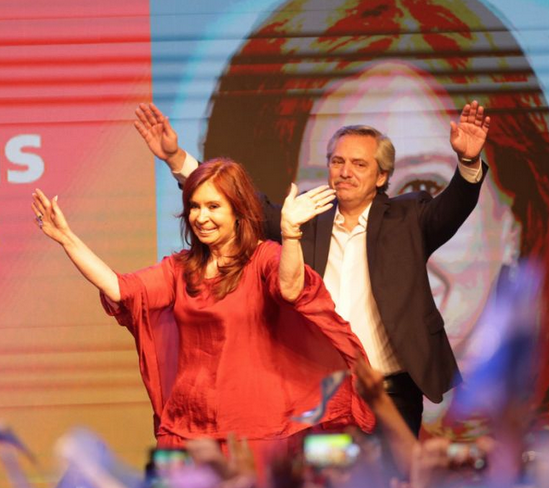Alberto Fernández obtuvo el 48.1% de los votos, por delante del 40.4% de Macri, con más del 97% de las boletas contadas, colocando al retador de centro-izquierda por encima del umbral del 45% para evitar una segunda vuelta y ganar la elección de inmediato.

La victoria de Fernández señala el regreso del peronismo al poder nacional, inclinando a la nación hacia el populismo de izquierda en un momento de crisis económica. Pero aunque los votantes rechazaron la austeridad del gobierno de Macri, el resultado también fue más estricto de lo esperado, lo que refleja la cautela sobre la capacidad de Fernández para dirigir la economía en momentos difíciles.
El presidente electo Fernández, asume el cargo el 10 de diciembre, tendrá dificultades inmediatas debido a la falta de fondos para disponer: la economía se está contrayendo, la inflación está por encima del 50% y el desempleo es más del 10% y el 35% de la población vive debajo de la línea de pobreza. Los inversores también esperan que el gobierno falle en algún momento. La administración de Macri acumuló deuda para cubrir el déficit que heredó de la ex presidenta Cristina Kirchner.
También debe satisfacer las demandas competitivas de las facciones de extrema izquierda en su amplia coalición que implica más gasto social, y el Fondo Monetario Internacional, que acordó un rescate récord de USD 56 mil millones el año pasado. Es probable que el FMI tenga poca paciencia para repartir más efectivo si Fernández adopta políticas que arriesgan un presupuesto equilibrado.
Su victoria, con la incertidumbre que la rodea, llega en un momento frágil para América Latina. En un contexto de violentas protestas contra la austeridad ha sacudido a Chile y Ecuador; Perú enfrenta una gran incertidumbre política; La economía de Venezuela se ha derrumbado; y el resultado de las elecciones presidenciales en Bolivia ha sido cuestionado.
Luego que se anunciara el resultado del domingo, el Banco Central de Argentina (BCRA) anunció un endureciendo de los controles de divisas. Las compras en dólares estadounidenses estarán restringidas a USD 200 por mes, por debajo de USD 10 000 por mes. Estas medidas, se aplicaron para preservar las reservas del banco central, permanecerán vigentes hasta diciembre.
